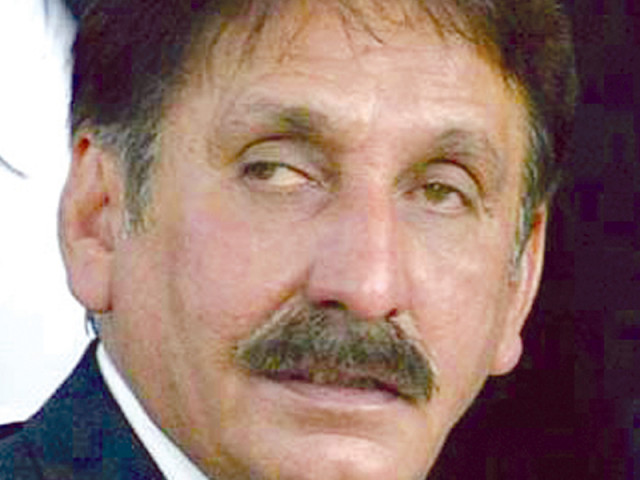Supreme Court rejects government's plea to review NRO verdict
Court delivers verdict as law secretary refuses to present documents to bench.

Supreme Court rejects government's plea to review NRO verdict
The Chief Justice of Pakistan Iftikhar Mohammad Chaudhry delivered the verdict that was heard by a 17-member bench. Justice Chaudhry said that the court had discarded the review petition because the documents presented “do not belong to the case”.
When the court ordered Law Secretary Masood Chishti to present additional documents, he refused to comply with the request. He said that Babar Awan (who was not present in court) would present the additional documents on Monday as he was occupied with family matters today.
The court, again, ordered Chishti to read additional documents, adding that the bench did not expect the case to be argued and that a simple reading would suffice. Chishti refused to comply with court orders, saying that he is not in a position to do. He said he realises he will face contempt of court charges and is prepared to go to jail as he is "not interested" in his job.
During Thursday’s hearing, Awan had presented documents to an increasingly frustrated bench. “In the past four days, the federation has failed to tell the court how it was affected by the verdict,” Justice Asif Saeed Khosa had said. Awan submitted additional documents to show how the verdict had hurt the federation, but the court made it clear that additional documents cannot be accepted in a review appeal case. The chief justice said that being an ‘experienced lawyer’ Awan should have known this.
Although the bench did not officially accept the documents, it agreed to finally hear his arguments today (Friday).
Awan was not present during the hearing.
The NRO was issued by former President of Pakistan, General Pervez Musharraf in 2007. It granted amnesty to politicians, political workers and bureaucrats who were accused of corruption, embezzlement, money laundering, murder, and terrorism. It was declared unconstitutional by the Supreme Court in 2009, throwing the country into a political crisis.
Aitzaz wants decision implented
Former Supreme Court Bar Association President Aitzaz Ahsan said that the court’s decisions should be accepted and implemented.
He was talking to the media outside the Supreme Court after the dismissal of the NRO review petition.
He said that although the federation had put up some delays, it would be unfair to say that the court’s decision remained unimplemented.
He added that President Asif Ali Zardari is exempt from any lawsuit under article 248 of the constitution and ruled out the chances of any rift between the federation and the judiciary over the verdict.
Correction: An earlier version of this post incorrectly stated that Babar Awan was occupied with Assembly matters.



















COMMENTS
Comments are moderated and generally will be posted if they are on-topic and not abusive.
For more information, please see our Comments FAQ